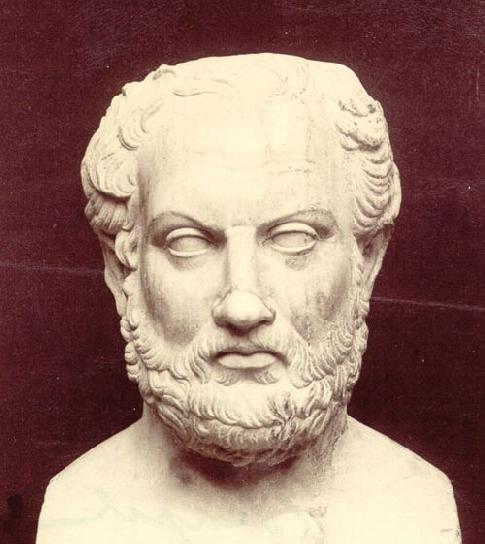The directory «Plots»
Thucydides (Θουκυδίδης)
(c.460–c.400 B.C.)

Greek historian of Athens, one of the greatest of ancient historians. His family was partly Thracian. As a general in the Peloponnesian War he failed (424 B.C.) to prevent the surrender of the city of Amphipolis to the Spartan commander Brasidas and was exiled until the end of the war. He thus had opportunity to acquaint himself with both the Athenians and the Spartans and to acquire firsthand information for his one work, the incomplete History of the Peloponnesian War. It covered the period from 431 to 411 and was a departure from the histories of the past, both in method and presentation. He wrote a text to be read, not recited, and he was scrupulous in his presentation of facts. Preeminently a military history, chronicling events by the seasons, it completely avoids any reference to social conditions or state policy, unless they have to deal with the progress of the war, and interprets the succession of events in view of the general nature and behavior of man rather than as the result of a fate outside man’s influence. The work is enlivened by the well-crafted speeches he puts into the mouths of participants in the events he chronicles, a common technique in his day. The most splendid of these is Pericles’ funeral oration. Thucydides’ account of the plague, through which he lived, displays his clinical and descriptive attitude and is a standard of its type. He is generally acclaimed as the creator of scholarly history as we know it today. The classic English translation of the History is that of Thomas Hobbes (1629; ed. by David Grene, 1959); modern translations include those by Richard Crawley (1910, repr. 1952), Rex Warner (1954), and R. W. Livingstone (1960).
Greece, 1998, Thucydides